How do you clean houseplant leaves? This is how plant experts tackle the task
Find out how to clean houseplant leaves the natural way to get the best results

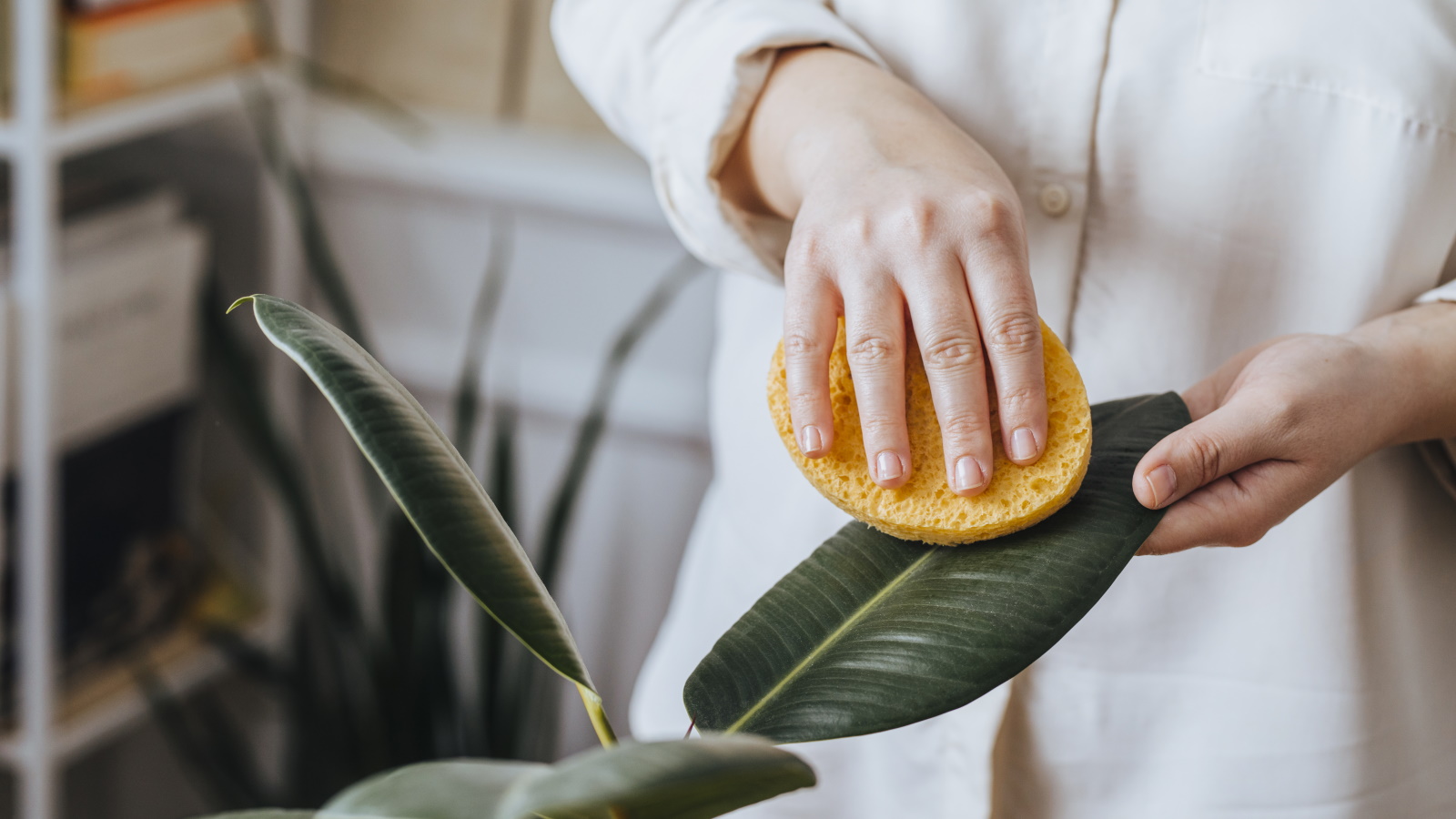
Design expertise in your inbox – from inspiring decorating ideas and beautiful celebrity homes to practical gardening advice and shopping round-ups.
You are now subscribed
Your newsletter sign-up was successful
Want to add more newsletters?

Twice a week
Homes&Gardens
The ultimate interior design resource from the world's leading experts - discover inspiring decorating ideas, color scheming know-how, garden inspiration and shopping expertise.

Once a week
In The Loop from Next In Design
Members of the Next in Design Circle will receive In the Loop, our weekly email filled with trade news, names to know and spotlight moments. Together we’re building a brighter design future.

Twice a week
Cucina
Whether you’re passionate about hosting exquisite dinners, experimenting with culinary trends, or perfecting your kitchen's design with timeless elegance and innovative functionality, this newsletter is here to inspire
If you're wondering how to clean houseplant leaves first take into consideration the variety and how dusty the leaves are. They may be some of the best indoor plants to grow, but houseplants are real dust gatherers. Unsightly dust and dirt easily collects on the leaves, taking the shine off your collection. But different plants require different methods of cleaning for the best results.
Cleaning houseplants is good for them as they aren't able to photosynthesise properly if their leaves have a build-up of dust that reduces their ability to absorb sunlight. So for the health and wellbeing of your plants, as well as their appearance, a regular wash and brush-up is a good idea.
Bear in mind that if you keep your windows open on a regular basis, have ceiling fans or pets in the house, you might need to clean your plants more often.
'In winter in particular, wiping houseplant leaves clean will really help them to make the most of declining light levels,' says Ruth Hayes, gardening expert and former editor of Amateur Gardening.
It's a good idea to schedule a cleaning session once a month so your collection of houseplants always looks its best. You can add this to your weekly watering and tidy-up session but it's easy to forget, so why not set up a calendar note to remind you.
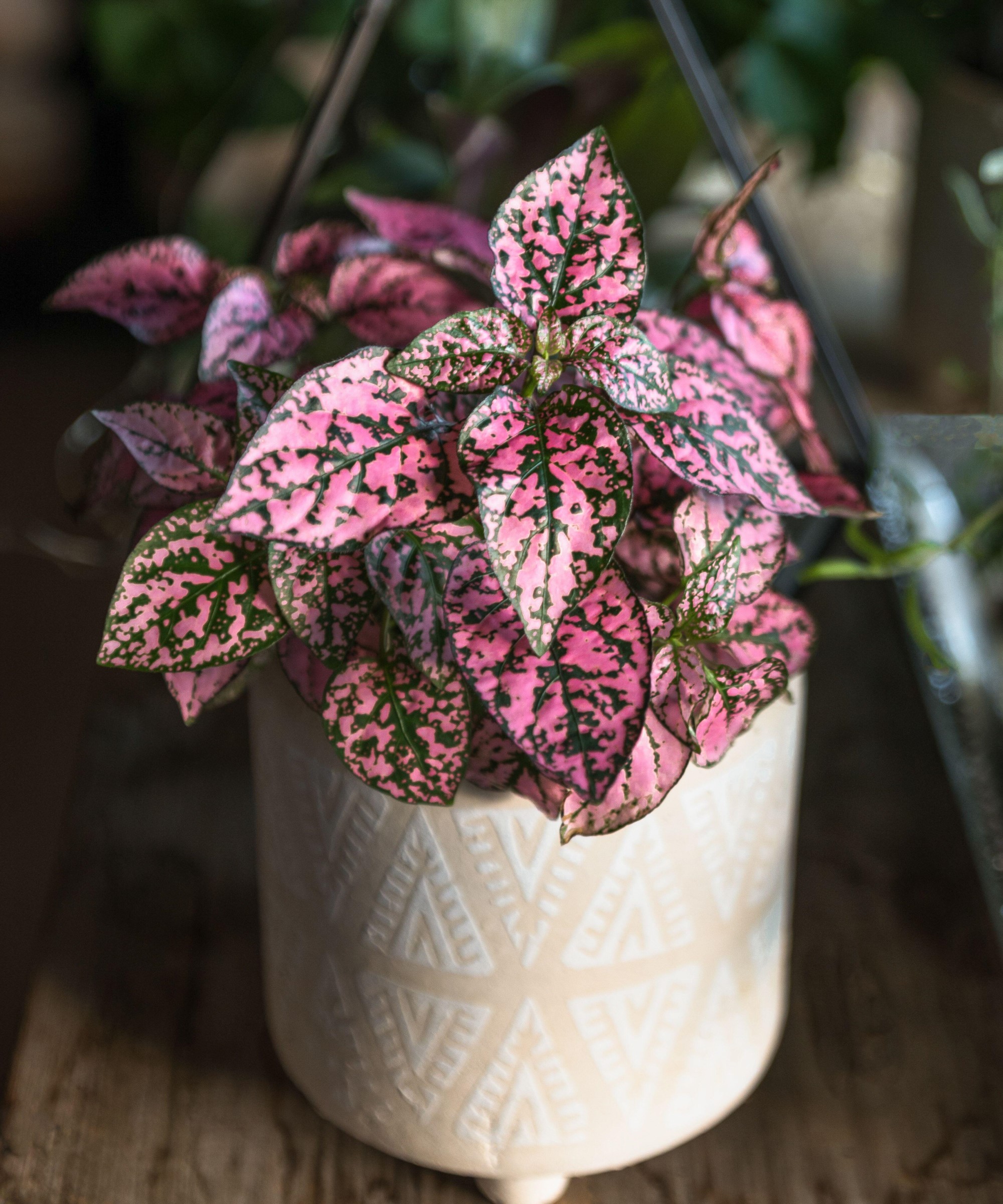
What you'll need for cleaning your houseplant's leaves
It's not really a question of whether you should clean your houseplants (as we definitely think you should), it's more about how you do it to get the best results.
If you have quite a selection of houseplants of different varieties, shapes and sizes it's a good idea to put your own plant care kit together to deal with every eventuality.
Design expertise in your inbox – from inspiring decorating ideas and beautiful celebrity homes to practical gardening advice and shopping round-ups.
Being covered in a layer of dust means your plants won’t look their best yet surprisingly it's one of the biggest indoor plant mistakes we make. Here are some suggestions for basics you should include.
- A plant mister or clean spray bottle, available from Amazon
- Soft (and clean) microfiber cleaning cloth, available from Amazon
- Clean and dry paintbrush
- Artist's painting brush with fine tip
- Pack of Q tips
- Cotton wool balls
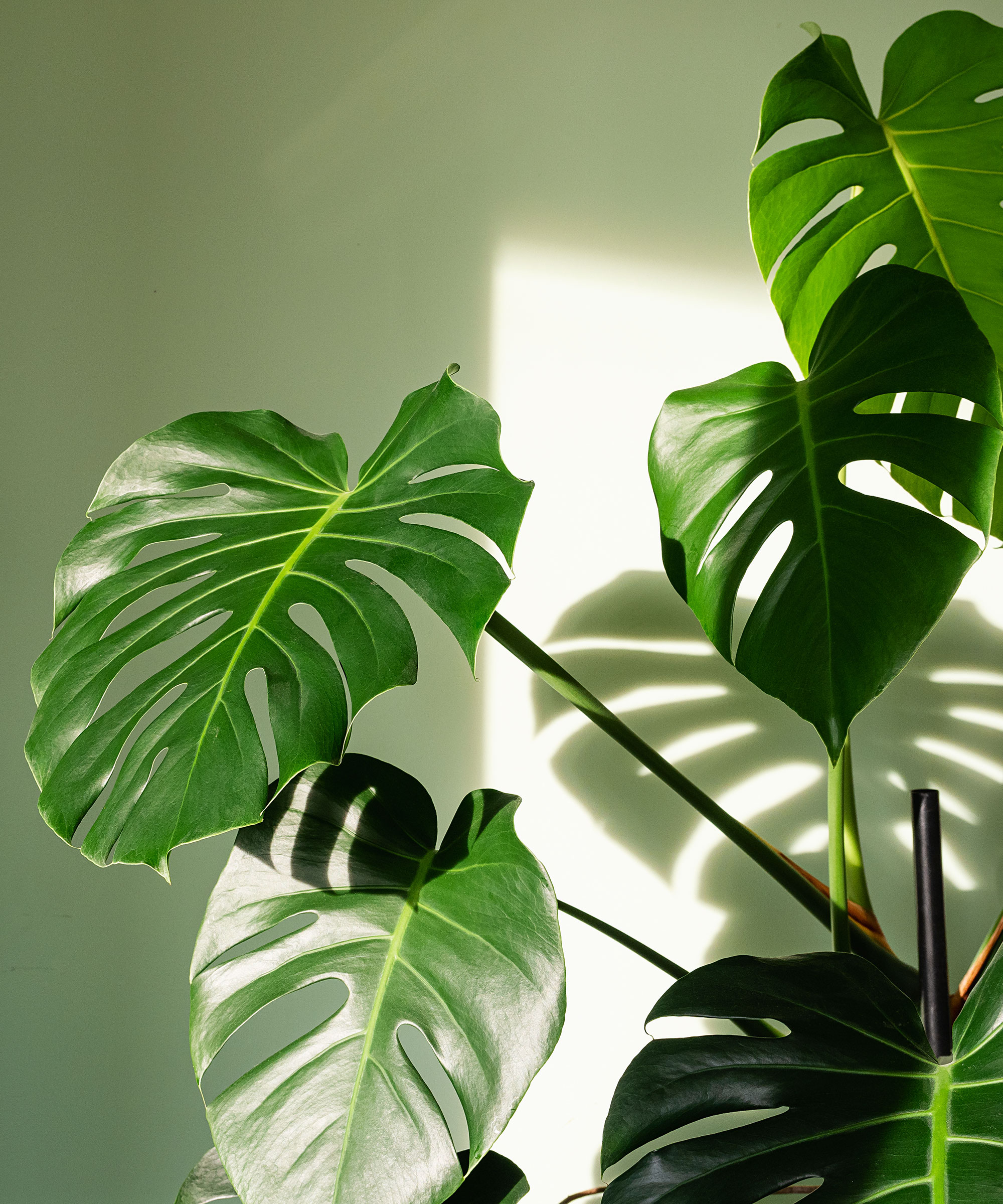
How to clean houseplants with smooth and shiny leaves
It's easy to keep plants with a smooth and shiny surface clean such as rubber plants, monstera plants and fiddle leaf figs. All you need to do is occasionally wipe over the leaves with a damp microfibre cloth or damp non-scratchy sponge. Support the leaves as you wipe so they don’t snap off.
'If your houseplants are struggling with thrips or other common houseplant pests, try diluting a drop of non-fragranced organic soap with water and adding this to the cloth. Alternatively, gently mist the plant with the solution before you start cleaning,' says Holly Crossley, houseplant expert and senior content editor for Homes & Gardens. 'This will help to keep the bugs at bay.'
If you want to add a real lustre to houseplants with leaves like this apply your own leaf shine mix after you've wiped dust from the leaves. A mixture of half milk and half water applied with cotton wool balls also works. Be sure to squeeze out the cotton wool ball first so the solution doesn't drip.
If you have a houseplant that's huge and you don't want to move it, try reaching up with a feather duster instead to get to those difficult to reach spots.

Over the years Holly has been an allotment keeper, a professional gardener, and a botanical illustrator. Having worked for Gardeningetc.com for two years, Holly now writes about plants and outdoor living for Homes & Gardens.
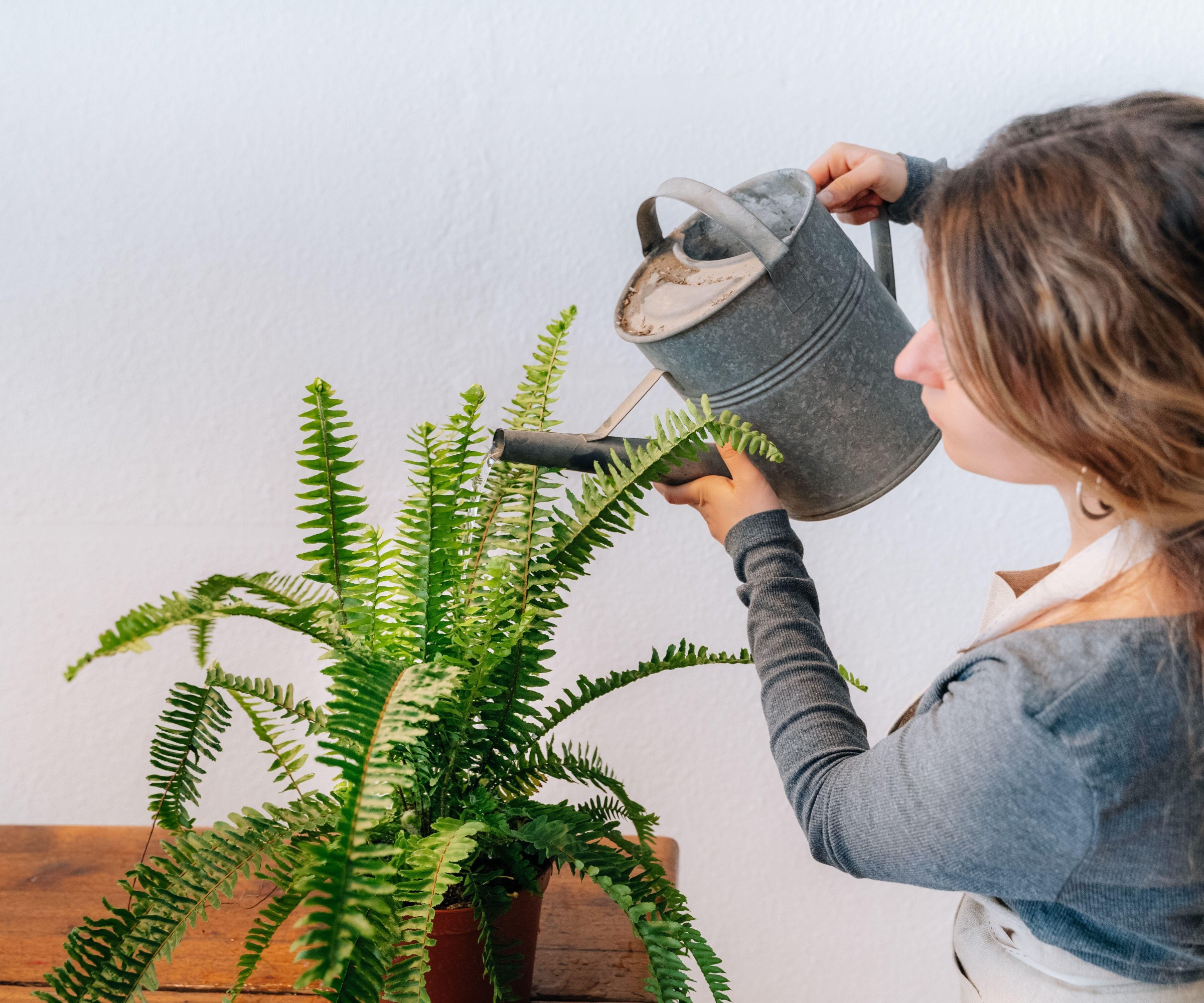
How to clean houseplants with feathery foliage
Plants like maidenhair fern, Boston fern and asparagus fern have delicate leafy foliage that is best brushed over with a clean soft paint brush to loosen any dust or dirt. Use a gentle swishing motion to dislodge the dust. If the debris isn't shifting try dipping the paintbrush in lukewarm water and gently painting the leaves with it until the leaves are clean.
The smaller and more delicate the plant, the smaller and softer the brush you should use. Once you've finished cleaning them treat your plants to a light misting of water from a spray, which also helps to increase the humidity around them.
Leafy plants like Kentia palm can be cleaned by draping a soft damp cloth over a leaf then gently running it along the length of the leaf from stem to tip.
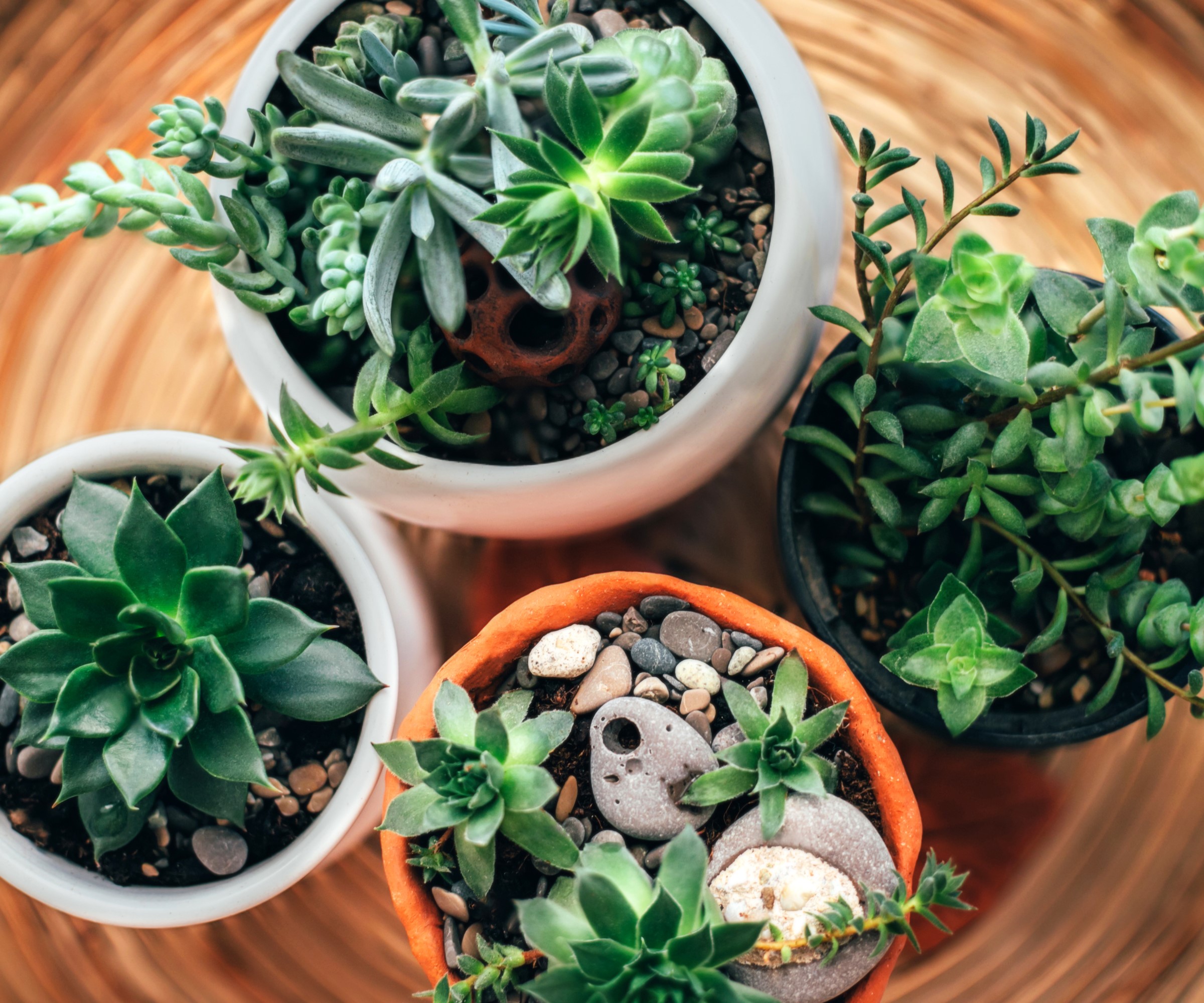
How to clean cacti and succulent plants
Thorny cacti are tricky when it comes to how to clean them as you need to be extra careful around their prickly stems. Don't be tempted to use water. Instead use a clean, dry paintbrush to softly stroke between the spikes and pick up any dust or dirt particles. For small cacti plants try using a Q tip in the same way or a clean artist's painting brush with a fine point.
For indoor succulents, run a clean, dry, soft cloth over each individual leaf from stem to tip. They should shine up nicely if you do this. Avoid splashing water from above or spritzing them with water.
The good news is that both cacti and succulent varieties are some of the best low maintenance indoor plants you can grow, so other than this quick cleaning task there's not much else you will need to do.
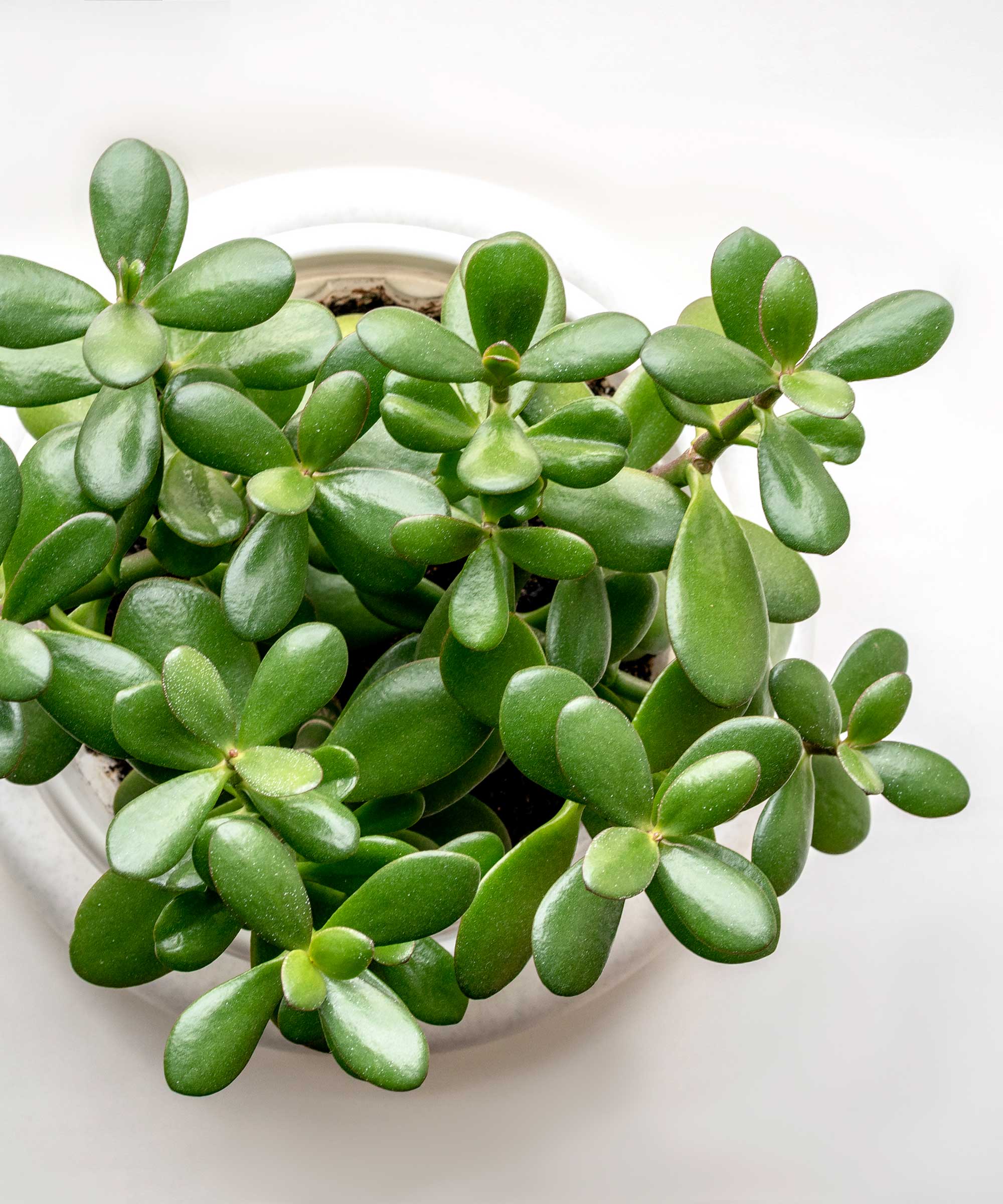
Cleaning houseplant leaves in a bucket of water
This is a good idea for the smaller plants in your indoor garden. Fill a bucket with lukewarm water. Hold the base of the plant firmly at soil level, then turn it upside-down. Dunk into the bucket of water, and gently swish the leaves around.
You could also use plastic wrap around the base of the plant and pot to contain the soil and stop it falling out while you're doing this. Let the plants dry thoroughly before moving them back into position.
If you're cleaning your kitchen plants using this method, it can help to add a little mild dish soap to the water to help thoroughly clean the leaves and remove the build up of sticky grime from cooking.
FAQs
Can I clean my houseplant leaves in the shower?
If you have a large collection of plants it might be easiest to move them all to the shower or bathtub to clean them in one place, especially if they live in your bathroom, or if some of the plants are quite large or have lots of small leaves such as spider plants that are too fiddly to clean individually.
Lukewarm water is always best. Support the leaves with your free hand as you spray. Allow your plants to dry off completely before returning them to their original positions.
Can you use baby wipes to clean houseplant leaves?
It might seem like a quick fix, but baby wipes can often contain chemicals and alcohol that could damage your plant's delicate leaves, so if in doubt it's better not to. If you are tempted, check the label to make sure they are unscented and chemical free.
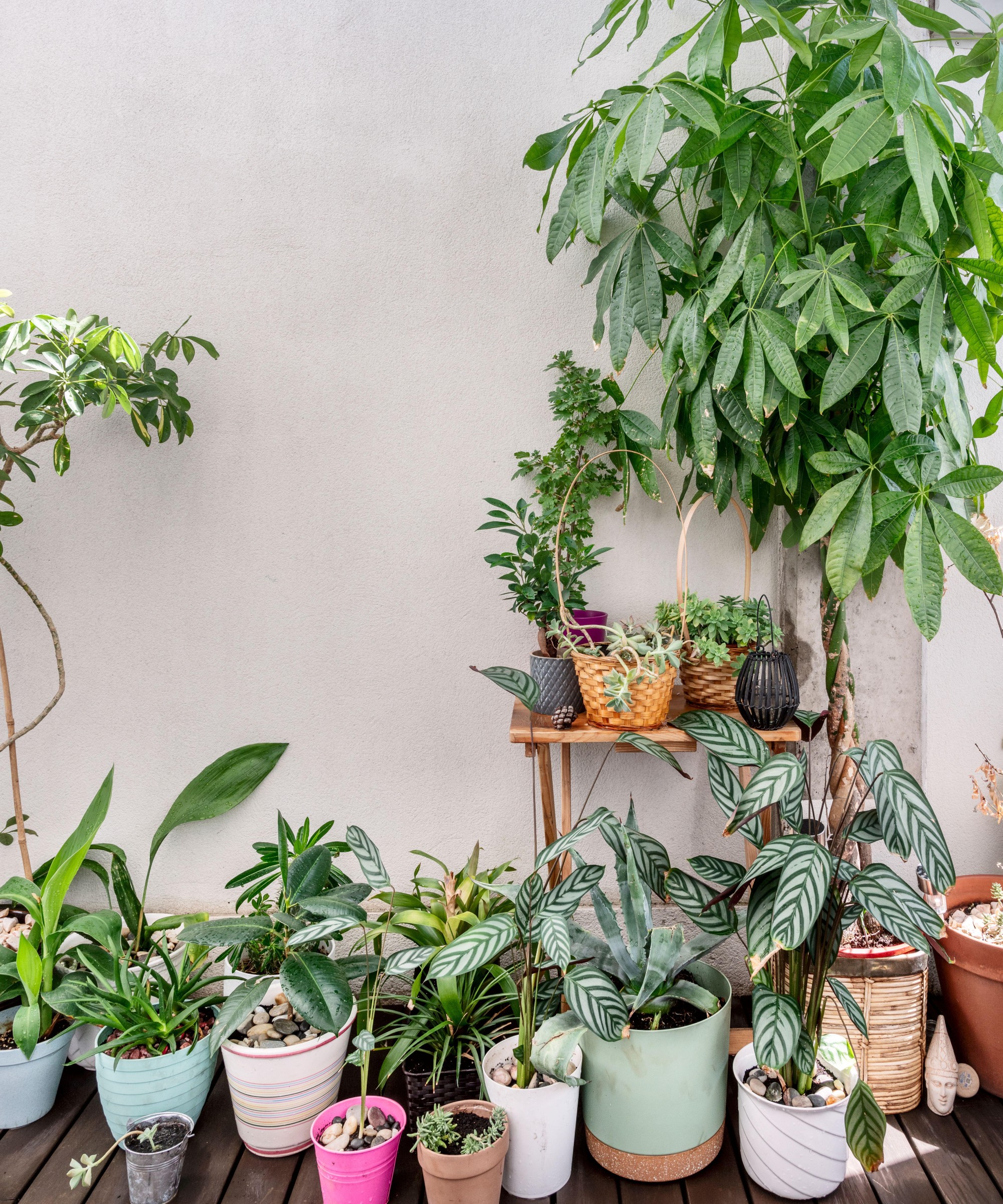
You might need to add it to your fall cleaning tasks, but cleaning your houseplants doesn't have to be a chore. With the right kit and natural cleaning methods to hand it needn't take long to keep houseplant leaves looking shiny and healthy.

Lifestyle journalist Sarah Wilson writes about garden design and landscaping trends for Homes & Gardens. She has studied introductory garden and landscape design, and also has an RHS Level 2 qualification in the Principles of Plant Growth and Development. She is a regular contributor to Homes & Gardens and Livingetc. She has also written for Country Living, Country Homes & Interiors, and Modern Gardens magazines